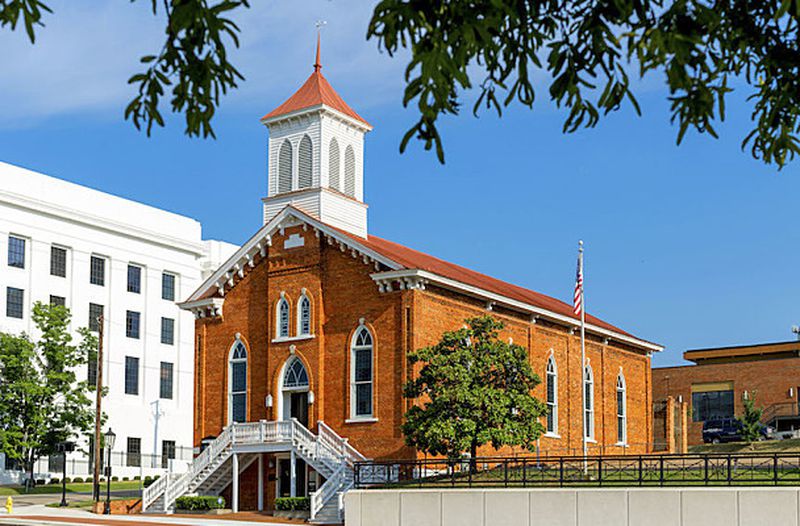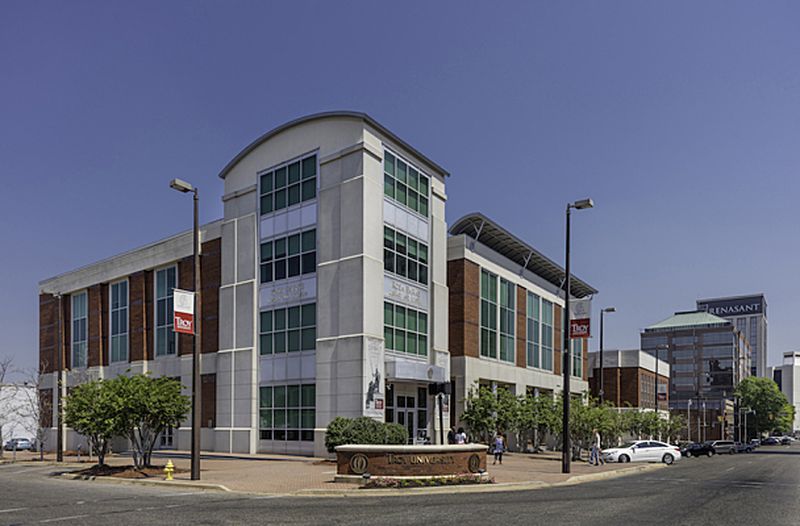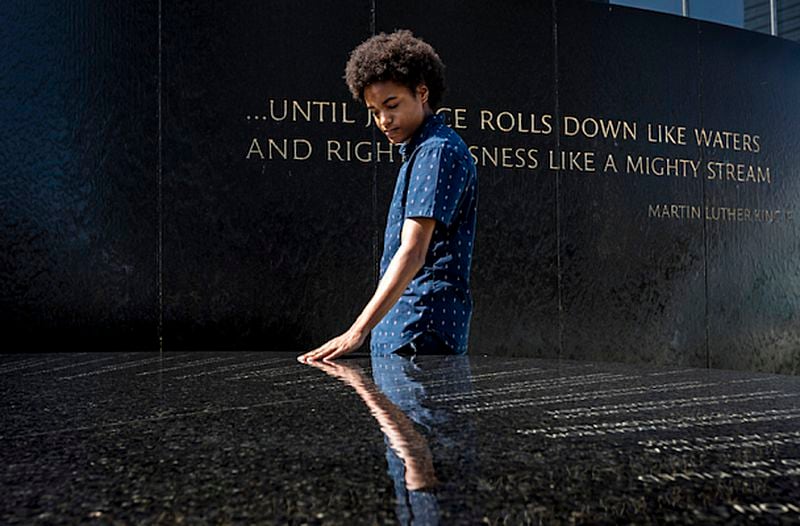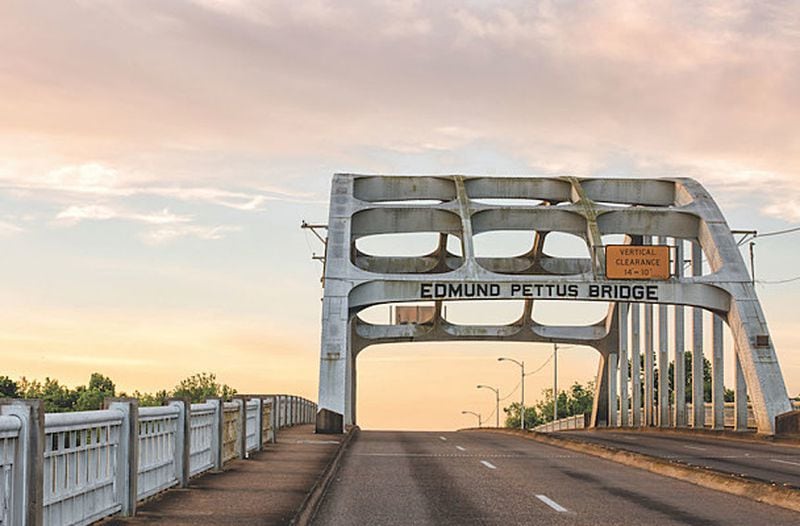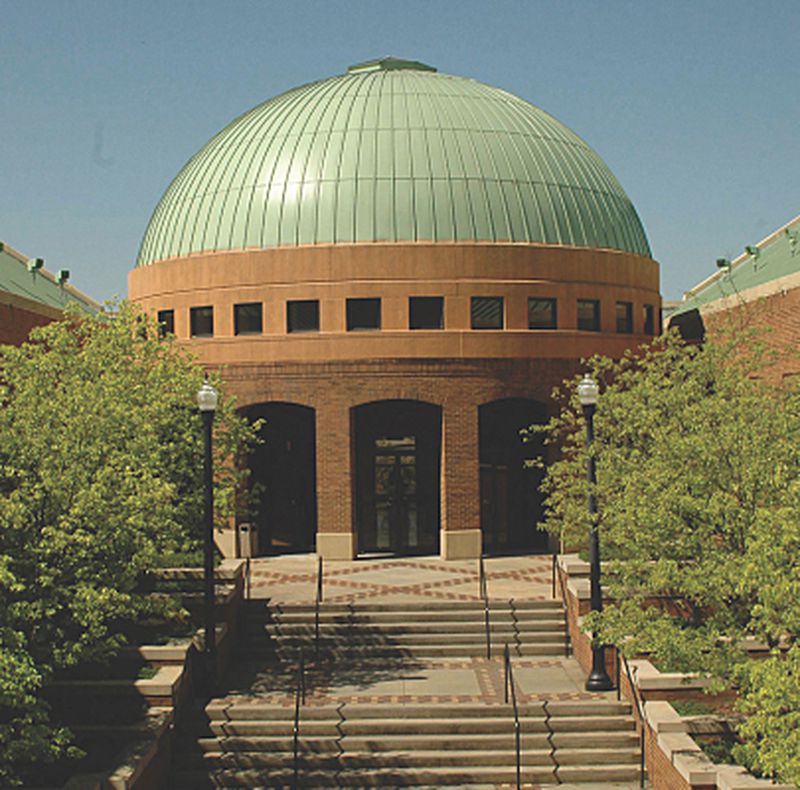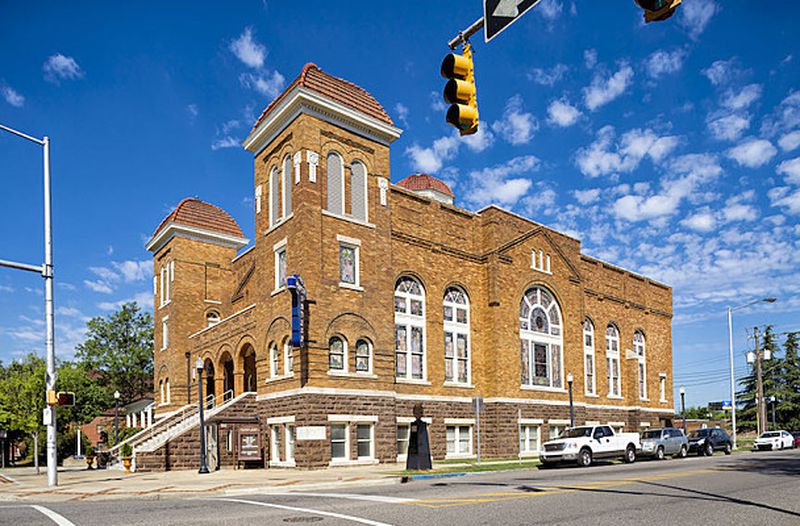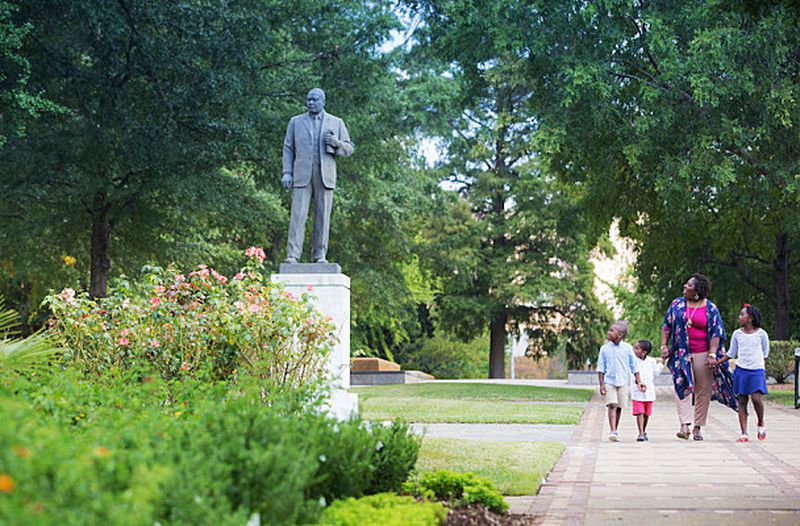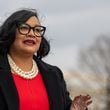It's a Southern trail that tells the tale of fighting for national social justice.
The Alabama Civil Rights Trail documents the real-life routes and landmarks leaders like Ralph Abernathy, Rosa Parks and Martin Luther King Jr. traveled to gain equality and change for all.
Because the trail has grown to include more than 20 sites across Selma, Montgomery and Birmingham, Lee Sentell, the state's tourism director, identifies seven of the most pivotal sites from the trail and civil rights movement worth the road trip to experience for yourself:
Credit: Photo by Art Meripol
Credit: Photo by Art Meripol
Dexter Avenue King Memorial Baptist Church
454 Dexter Ave., Montgomery, Alabama
"The preserved Dexter Avenue King Memorial Baptist Church appears as it did when Dr. Martin Luther King Jr. served here as pastor from 1954-1960," said Sentell. "The 1883 church was the site of mass meetings to organize the famous Montgomery Bus Boycott and is known as the birthplace of the civil rights movement. A large mural depicts the struggles of the movement and landmark moments in King's life."
HOURS: Tours are Tuesday through Saturday, every hour on the hour. Tuesday-Friday from 10 and 11 a.m. and 1, 2 and 3 p.m.; Saturday from 10 and 11 a.m. and noon and 1 p.m.
TICKETS: $10
Credit: Photo by Art Meripol
Credit: Photo by Art Meripol
Rosa Parks Museum
251 Montgomery St., Montgomery, Alabama
"We have historic markers designated where Rosa Parks boarded the public bus and where she was arrested for refusing to give up her seat to a white passenger at this particular site," Sentell said. "The Rosa Parks Museum, located at the site of Parks' famous arrest, is centered on her story and its significance to the civil rights movement. It also features a restored bus and other related artifacts."
HOURS: Tours are self-guided with less than 20 guests. All walk-in tours begin on the half-hour and are self-guided. 9 a.m. to 5 p.m.Monday-Friday (last admission at 4 p.m., children's wing is 4:30 p.m.); 9 a.m. to 3 p.m. Saturday(last admission at 2 p.m., children's wing is 2:20 p.m.)
TICKETS: Ages 12 and under, $5.50; over age 12, $7.50
Credit: Photo by Art Meripol
Credit: Photo by Art Meripol
Civil Rights Memorial Center
400 Washington Ave., Montgomery, Alabama
"Dr. King's famous paraphrase of Amos 5:24 — 'Until justice rolls down like waters and righteousness like a mighty stream' — is chiseled into the black granite of the Civil Rights Memorial," said Sentell. "This center is a moving tribute to those who died in the civil rights struggle between 1954 and 1968." Created by Vietnam Memorial architect Maya Lin in 1989, the memorial sits adjacent to the Civil Rights Memorial Center, sponsored by the Southern Poverty Law Center. The center includes exhibits, educational activities and materials, a theater and the Wall of Tolerance.
HOURS: 9 a.m. to 4:30 p.m Monday-Friday.; 10 a.m. to 4 p.m. Saturday
TICKETS: Adults, $2; children, free
Credit: Photo by Art Meripol
Credit: Photo by Art Meripol
Edmund Pettus Bridge
U.S. Highway 80 at Water Avenue, Selma, Alabama
"Now a National Historic Landmark, the Edmund Pettus Bridge was the site of the brutal Bloody Sunday beatings of civil rights marchers during the first march for voting rights," said Sentell. "The televised attacks were seen all over the nation, prompting public support for the civil rights activists in Selma and for the voting rights campaign. After Bloody Sunday, protestors were granted the right to continue marching, and the third attempt proved successful." The bridge became a centerpiece in the 2014 historical drama film "Selma" directed by Ava DuVernay as well.
HOURS: Selma/National Park Service Interpretive Center at the foot of the Edmund Pettus Bridge is open 9 a.m. to 4:30 p.m. Monday-Saturday
TICKETS: Free
Credit: Alabama Tourism Department
Credit: Alabama Tourism Department
Birmingham Civil Rights Institute
520 16th St., North Birmingham, Alabama
This modern museum features a model of a segregated city during the 1950s, a replica of a Freedom Riders bus and even the actual door to the jail cell that held Dr. King, which is where he wrote his famous "Letter from Birmingham Jail." "It boasts 58,000 square feet of archives, galleries, community meeting rooms and exhibit spaces that trace the civil rights movement in Birmingham from the city's early days as a mining community to the present," said Sentell.
HOURS: 1-5 p.m. Sunday; 10 a.m. to 5 p.m. Tuesday-Saturday
TICKETS: Adults, $15; seniors (age 65+), $5; college students, $6; youth (grades 4-12), $5; and children (grade 3 and younger): free
Credit: Photo by Art Meripol
Credit: Photo by Art Meripol
16th Street Baptist Church
1530 6th Ave. North, Birmingham, Alabama
"Despite its tragic past," said Sentell, "16th Street Baptist Church is still an active church in the Birmingham community today. During the civil rights movement, the church served as a meeting place for the organization of marches and other civil rights activities." In 1963, the church was bombed, resulting in the deaths of four young black girls: Addie Mae Collins, Cynthia Wesley, Denise McNair and Carole Robertson. This event galvanized the federal government to take action on civil rights legislation. The church is part of the Birmingham Civil Rights District that has been designated a national monument.
HOURS: 10 a.m. to 3 p.m. Tuesday-Friday; (by appointment only) 10 a.m. to 1 p.m.Saturday
TICKETS: $5
Credit: Chris Granger
Credit: Chris Granger
Kelly Ingram Park
5th Avenue 16th Street, Birmingham, Alabama
"Kelly Ingram Park served as an assembly spot for activities of the Southern Christian Leadership Conference and other groups in the civil rights movement," Sentell said. "Visitors can walk through the now peaceful park to see artists' interpretations." The Freedom Walk sculptures include two children seen through jail bars, a trio of praying ministers and an image of a dog threatening a young man. A statue of the Rev. Martin Luther King Jr. faces the 16th Baptist Church. The park also is part of the Birmingham Civil Rights District that has been designated a national monument.
HOURS/TICKETS: Free and open to the public
.
